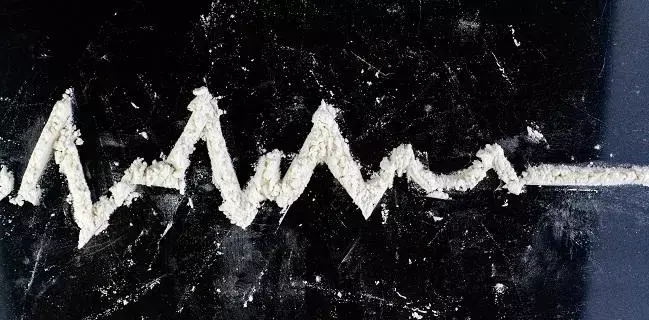- Home
- Medical news & Guidelines
- Anesthesiology
- Cardiology and CTVS
- Critical Care
- Dentistry
- Dermatology
- Diabetes and Endocrinology
- ENT
- Gastroenterology
- Medicine
- Nephrology
- Neurology
- Obstretics-Gynaecology
- Oncology
- Ophthalmology
- Orthopaedics
- Pediatrics-Neonatology
- Psychiatry
- Pulmonology
- Radiology
- Surgery
- Urology
- Laboratory Medicine
- Diet
- Nursing
- Paramedical
- Physiotherapy
- Health news
- Fact Check
- Bone Health Fact Check
- Brain Health Fact Check
- Cancer Related Fact Check
- Child Care Fact Check
- Dental and oral health fact check
- Diabetes and metabolic health fact check
- Diet and Nutrition Fact Check
- Eye and ENT Care Fact Check
- Fitness fact check
- Gut health fact check
- Heart health fact check
- Kidney health fact check
- Medical education fact check
- Men's health fact check
- Respiratory fact check
- Skin and hair care fact check
- Vaccine and Immunization fact check
- Women's health fact check
- AYUSH
- State News
- Andaman and Nicobar Islands
- Andhra Pradesh
- Arunachal Pradesh
- Assam
- Bihar
- Chandigarh
- Chattisgarh
- Dadra and Nagar Haveli
- Daman and Diu
- Delhi
- Goa
- Gujarat
- Haryana
- Himachal Pradesh
- Jammu & Kashmir
- Jharkhand
- Karnataka
- Kerala
- Ladakh
- Lakshadweep
- Madhya Pradesh
- Maharashtra
- Manipur
- Meghalaya
- Mizoram
- Nagaland
- Odisha
- Puducherry
- Punjab
- Rajasthan
- Sikkim
- Tamil Nadu
- Telangana
- Tripura
- Uttar Pradesh
- Uttrakhand
- West Bengal
- Medical Education
- Industry
Invasive Approach and Revascularization Reduces Morbidity in Cocaine-Associated Non STEMI

Cocaine increases myocardial oxygen demand, thus causing marked vasoconstriction of the coronary arteries and enhances platelet aggregation and thrombus formation, all of which may lead to myocardial infarction (MI). Despite increased awareness of the deleterious consequences of cocaine abuse, it remains a major worldwide health problem. In a recent study, researchers have found that the invasive approaches and revascularization for cocaine-associated Non STEMI are associated with lower morbidity. Overall, invasive management, which included coronary angiography followed by PCI or CABG if needed, lowered the risk of MACE at 6 months by 28% compared with a noninvasive strategy.
The study findings were published in the JACC: Cardiovascular Interventions on March 15, 2021.
In general, current guidelines recommend that patients with cocaine-associated MI should be treated similarly to those with traditional MI or the broader population with MI. However, there have been no randomized, prospective clinical trials to compare optimal treatment strategies for cocaine-associated MI and, available evidence comes primarily from retrospective observational studies, small case series, and case reports. The role of invasive approaches in cocaine-associated NSTEMI remains uncertain. Therefore, researchers of the Harrington Heart and Vascular Institute, USA, conducted a study to determine the impact of the invasive approaches and revascularization in patients with cocaine-associated non–ST-segment elevation myocardial infarction (NSTEMI).
It was a retrospective cohort study of 3,735 patients with NSTEMI and a history of cocaine use from the Nationwide Re-admissions Database from 2016 to 2017. The researchers determined the invasive approach as coronary angiography, percutaneous coronary intervention (PCI), and coronary artery bypass grafting (CABG). They also determined the revascularization as PCI and CABG. The primary efficacy outcome was major adverse cardiac events (MACE), and the primary safety outcome was emergent revascularization. They used the appropriate International Classification of Diseases-Tenth Revision codes to identify non-adherence. They also used multivariate logistic regression to generate two propensity-matched cohorts (noninvasive vs invasive and noninvasive vs. revascularization).
Key findings of the study were:
- In the propensity score-matched cohorts, the researchers found that the invasive approach (hazard ratio [HR]: 0.72) and revascularization (HR: 0.54) were associated with a lower rate of MACE, without an increase in emergent revascularization when compared with a non-invasive approach.
- On stratification, they noted that PCI and CABG individually were associated with a lower rate of MACE.
- However, they noted that the emergent revascularization was increased with PCI (HR: 1.78) but not with CABG.
- They observed no significant difference in the rate of MACE among non-adherent patients after PCI and CABG, but, PCI in non-adherent patients was associated with an increase in emergent revascularization (HR: 4.45).
The authors concluded, "Invasive approaches and revascularization for cocaine-associated NSTEMI are associated with lower morbidity. A history of medical nonadherence was not associated with a difference in morbidity but was associated with an increased risk for emergent revascularization with PCI."
For further information:
Dr Kartikeya Kohli is an Internal Medicine Consultant at Sitaram Bhartia Hospital in Delhi with super speciality training in Nephrology. He has worked with various eminent hospitals like Indraprastha Apollo Hospital, Sir Gangaram Hospital. He holds an MBBS from Kasturba Medical College Manipal, DNB Internal Medicine, Post Graduate Diploma in Clinical Research and Business Development, Fellow DNB Nephrology, MRCP and ECFMG Certification. He has been closely associated with India Medical Association South Delhi Branch and Delhi Medical Association and has been organising continuing medical education programs on their behalf from time to time. Further he has been contributing medical articles for their newsletters as well. He is also associated with electronic media and TV for conduction and presentation of health programs. He has been associated with Medical Dialogues for last 3 years and contributing articles on regular basis.
Dr Kamal Kant Kohli-MBBS, DTCD- a chest specialist with more than 30 years of practice and a flair for writing clinical articles, Dr Kamal Kant Kohli joined Medical Dialogues as a Chief Editor of Medical News. Besides writing articles, as an editor, he proofreads and verifies all the medical content published on Medical Dialogues including those coming from journals, studies,medical conferences,guidelines etc. Email: drkohli@medicaldialogues.in. Contact no. 011-43720751


